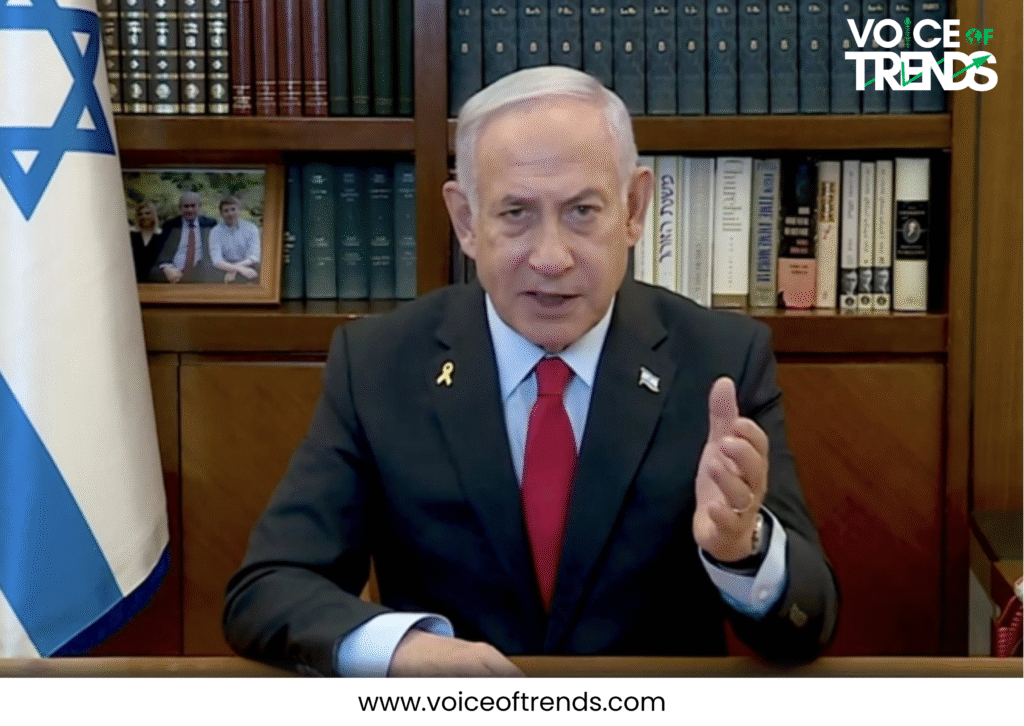The crisis in Gaza continues to draw international concern due to the severe impact on civilians and the intricate political situation surrounding it. Recent reports suggest that Israeli Prime Minister Benjamin Netanyahu is ready to end the war in the coming weeks, signaling a possible shift in Israel’s approach. The development comes amid international pressure, domestic divisions, and evolving regional dynamics. Below, we explore the latest updates, the context of the decision, and what it could mean for the region.
Table of Contents
ToggleA Shift in Netanyahu’s Stance
According to recent sources, Netanyahu has expressed his willingness to end the Gaza conflict within a short period of time, possibly within two weeks, after talks with US President Donald Trump. This is a significant departure from his earlier insistence on continuing military operations until the complete elimination of Hamas. The proposed plan includes an end to hostilities, the release of hostages and the establishment of a new governance structure for Gaza that would include Arab states such as the United Arab Emirates and Egypt.
The change comes after months of intense fighting, with Israel resuming air strikes after a brief ceasefire in March 2025. The conflict, which began after a Hamas attack on October 7, 2023, in which 1,200 Israelis were killed and 251 were taken hostage, has killed more than 54,000 Palestinians and caused widespread destruction in Gaza. Netanyahu’s openness to a ceasefire reflects growing domestic and international demands to prioritize the release of hostages and address the humanitarian crisis.
Key Elements of the Proposed Plan
The reported agreement between Netanyahu and Trump outlines several critical components:
- Ceasefire and hostage release: The plan prioritizes the release of the remaining 58 hostages held in Gaza, about 20 of whom are believed to be alive. In return, Israel would release Palestinian prisoners and halt military operations for 60 days, although Hamas is demanding a permanent end to the war.
- Gaza governance: The proposal envisions Arab states, including the United Arab Emirates and Egypt, taking on an administrative role in Gaza to replace Hamas control. However, Arab allies have stressed that any involvement would require Israel’s commitment to a two-state solution, a condition Netanyahu has historically rejected.
- Expansion of the Abraham Accords: The plan aims to take advantage of the recent ceasefire with Iran to potentially expand diplomatic ties with Arab countries, including Saudi Arabia. This could strengthen Israel’s regional position, but is contingent on resolving the Gaza conflict.
Domestic and International Pressures
Netanyahu’s change comes amid mounting pressure. Public opinion within Israel is divided. Polls show strong support for a ceasefire to secure the release of hostages, and families of captives regularly protest. Thousands of reservists have refused further duty, citing fatigue and doubts about the purpose of the war. Critics, including former Prime Minister Ehud Olmert, have accused Netanyahu of prolonging the conflict for political survival, especially given his ongoing corruption trial and the need to maintain his far-right coalition.
Israel has faced growing criticism internationally. The United Nations, European countries such as Britain, France and Germany, and even the United States have condemned the blockade that has pushed Gaza to the brink of famine and called for an end to the war. More than 93 percent of Gaza’s children are malnourished, and aid delivery is inadequate. The International Criminal Court has issued arrest warrants for Netanyahu and former Defense Minister Yuvraj Gallant for alleged war crimes, further isolating Israel.
What Lies Ahead
Netanyahu’s reported support for ending the Gaza conflict within weeks offers a glimmer of hope, but its success depends on deep-seated mistrust and competing agendas. The coming days, especially with President Trump’s upcoming visit to the region, will be crucial in determining whether the plan moves forward. At present, both the people of Gaza and Israel are hoping for a resolution that may offer a break from the ongoing violence, which has caused immense loss of life and deepened instability across the region.
As the situation evolves, the international community, including the United States, Arab states, and the United Nations, will play a critical role in moving toward a lasting peace. The world watches closely, hoping for an end to violence and a path toward stability in the Middle East.




















